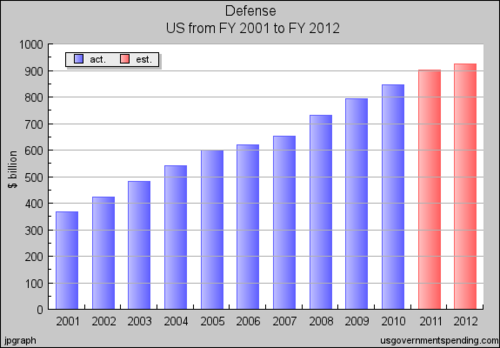Old_Trapper70
Well-Known Member
- Joined
- Dec 17, 2014
- Messages
- 2,383
Let's take it step by step here. Your article in "the verge" (whatever that is) includes in the headline the $1.5 trillion figure. If you bother to click the Vanity Fair story that they link to and base their entire "story" on you quickly find this comment:
"Over the course of its lifetime, the program will cost approximately $1.5 trillion."
Since that might not be enough apparently to convince the illustrious readers of "the verge" how about this quote from Reuters:
"The U.S. government now projects that the total cost to develop, buy and operate the Lockheed Martin Corp F-35 Joint Strike Fighter will be $1.45 trillion over the next 50-plus years, according to a Pentagon document obtained by Reuters."
Still don't believe the reality staring you in the face? Let's take a look at hard budget numbers. For the sake of simplicity we will look at FY 2006-2015 - as 2006 was the year we saw the first F35 flight. Over this time frame, the United States has spent roughly $6.5 trillion total as part of the defense budget. You contend that $1.5 trillion of that (or 23% of the total defense budget over the last decade) has been spent on a single program. It is as laughable as it is incorrect.
In doing some deeper research I find that while the program started in 1994, or 1996, there has never been an audit of the program. This is in spite of the knowledge that the program is using funding from other programs, and from outside the military. So, any concept of how much th eprogram has cost, or will cost, is "laughable".
Nowhere in Article 2 Section 2 does it use the word "after". It simply says the President is the Commander in Chief when the military is "called in the actual service of the United States." The military is a full time organization that is always in the actual service of the United States.
I do not argue that the President has the authority to declare war, I argue that he has limited authority (outside of Congressional action), as Commander in Chief to act to protect the United States. This is a debate that has been taking place since the Constitutional Convention however. You assume you are correct - but it is far more complicated than you let on.
The Foundling Fathers never wanted a permanent standing army. Save for the navy, and the marines, their concept was for the Militia to be the Army in time of need. And while I recognize the debate has been going on since the signing of the Constitution, the reality is that people have a tendency to make an issue far more complicated then it needs to be. The Founders did not want the US to be deeply involved in foreign matters. This was the position of Washington in his Farewell Address, as it was of Jefferson in his letters. One could make an argument that the permanent standing Army itself is unConstitutional.
Now we are talking about different things. I am talking about specific weapons programs, not simply base closures and realignments.
How have any of these affected the military readiness of the US?
http://www.cnbc.com/id/100631673

